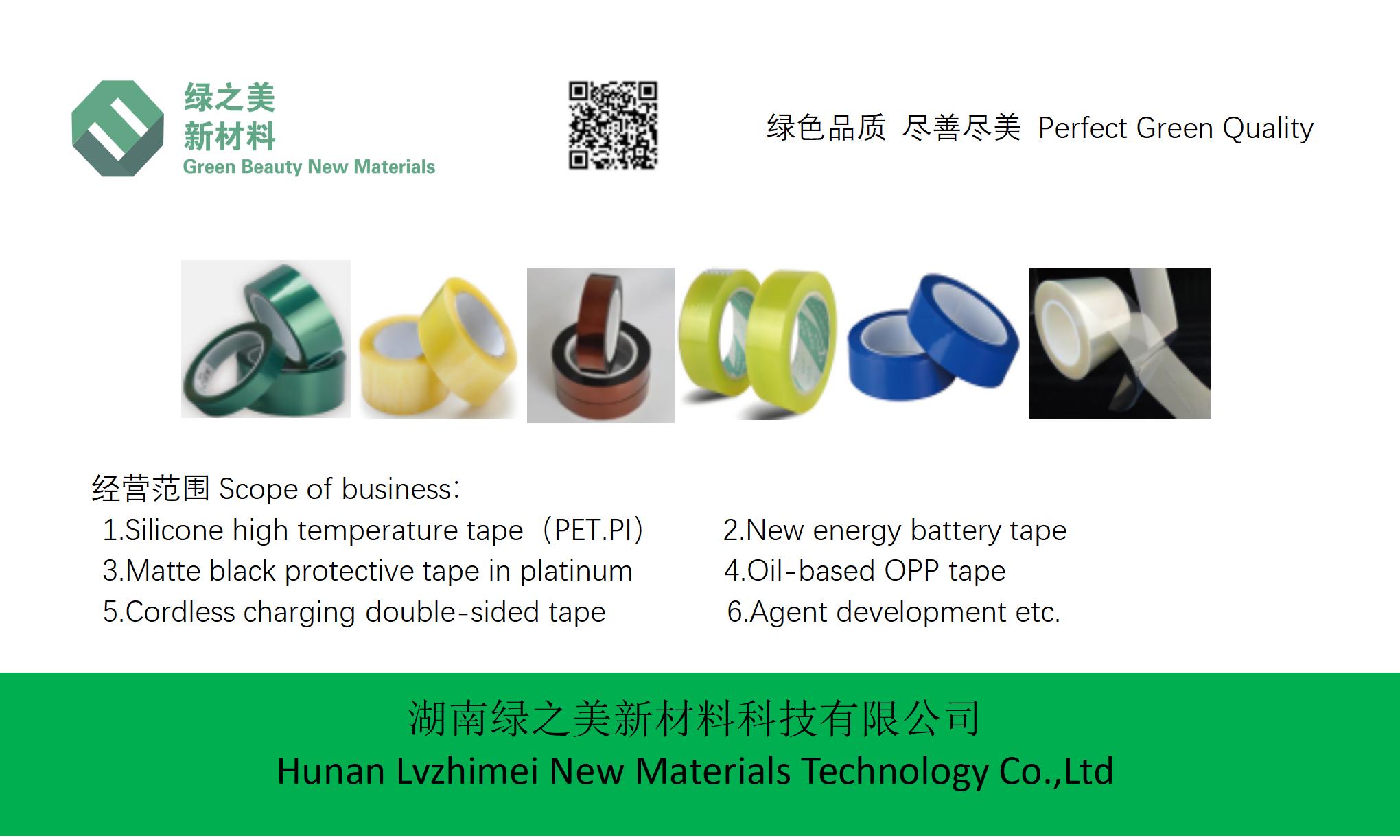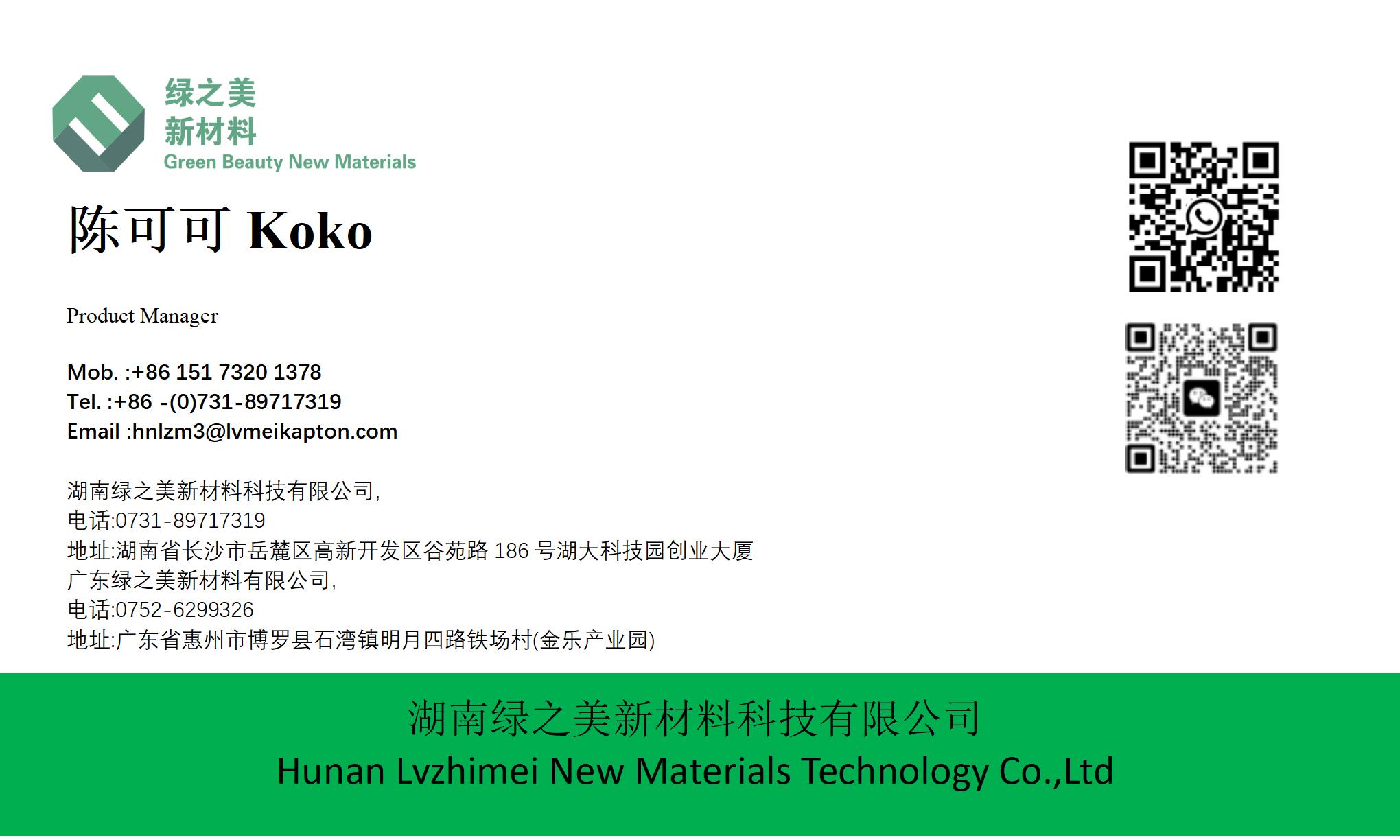hnlzm@lvmeikapton.com
+86 13787123465


Hunan Lvzhimei New Material Technology Co., Ltd.


NameDescriptionContent
Who Relies on LVMEIKapton Insulating Electrical Tape for Critical Projects? |https://www.lvmeikapton.com/
Source:
|
Author:Koko Chan
|
Published time: 2025-05-16
|
57 Views
|
Share:
In industries where electrical reliability and thermal resilience are non-negotiable, LVMEIKapton insulating electrical tape stands as a cornerstone solution. Engineered to withstand extreme environments, this tape offers superior thermal stability, chemical resistance, and electrical insulation compared to traditional materials like adhesive PET or standard PI (polyimide) tapes. This article delves into the sectors and professionals that rely on LVMEIKapton tape, exploring its applications, advantages, and technological advancements that set it apart.
Who Relies on LVMEIKapton Insulating Electrical Tape for Critical Projects?
IntroductionIn industries where electrical reliability and thermal resilience are non-negotiable, LVMEIKapton insulating electrical tape stands as a cornerstone solution. Engineered to withstand extreme environments, this tape offers superior thermal stability, chemical resistance, and electrical insulation compared to traditional materials like adhesive PET or standard PI (polyimide) tapes. This article delves into the sectors and professionals that rely on LVMEIKapton tape, exploring its applications, advantages, and technological advancements that set it apart.
Key Industries Dependent on LVMEIKapton Tape
1. Aerospace Engineering: Safeguarding Mission-Critical SystemsAerospace components operate in environments subjected to intense heat (up to 300°C), mechanical stress, and corrosive fuels. LVMEIKapton tape’s polyimide film core, coupled with silicone adhesive, ensures:
●
Thermal Endurance: Maintains integrity in jet engine compartments and satellite solar panels exposed to thermal cycling (-65°C to +260°C).
●
Chemical Resistance: Withstands exposure to aviation fuels, lubricants, and rocket propellants without degradation.
●
Space-Qualified Insulation: Meets NASA Outgassing Standards (NASA-STD-6001), preventing electrical failures in vacuum environments.
Case Study:
A leading satellite manufacturer adopted LVMEIKapton tape for wire harness insulation, reducing orbital failure rates by 40% over 5 years. The tape’s low dielectric constant (≤3.5) minimized signal interference in communication systems.
2. Automotive Manufacturing: Overcoming EV ChallengesElectric vehicles (EVs) demand durable insulation for high-voltage battery systems and motor controllers. LVMEIKapton tape addresses unique challenges:
●
High-Voltage Protection: Withstands 10kV DC breakdown voltage, preventing arcing in 800V charging systems.
●
Vibration Resistance: Self-adhesive back blocking spray (LVMEI-BS200) provides secure bonding in vibrating drivetrains.
●
Flame Retardancy: UL94 V-0 certified, suppressing fires in thermal runaway scenarios.
Table 1: LVMEIKapton vs. Adhesive PET Material High Temperature Tape
Parameter | LVMEIKapton Tape | Adhesive PET Tape |
Max Operating Temp | -65°C to +260°C | -40°C to +150°C |
Chemical Resistance | Resistant to acids, oils | Limited resistance to fuels |
Long-Term Adhesion | Maintains bond at 200°C | Adhesive degradation after 1000h |
Dielectric Strength | 150kV/mm | 80kV/mm |
3. Electronics Design: Precision Protection for PCBsPrinted circuit boards (PCBs) in industrial equipment face thermal shocks and soldering residues. LVMEIKapton’s specialized variants offer:
●
Brown Circuit Board Tape (LVMEI-HTB150): Shields SMT components during reflow soldering (peak 280°C), preventing delamination.
●
Self-Fusing PI Tape (LVMEI-SF300): Melts at 300°C, forming seamless insulating layers for high-density interconnects.
●
Corrosion-Proof Coating: Protects marine electronics from saltwater ingress, extending equipment lifespan by 3x.
Advantages Over Standard Alternatives
LVMEIKapton tape’s performance surpasses traditional materials through:
1.
Temperature Range: PI’s thermal stability (Tg >400°C) outmatches PET’s polyester backbone, avoiding thermal aging.
2.
Electrical Purity: Lower moisture absorption (≤0.6%) ensures consistent insulation in humid environments.
3.
Customization: Nano-fiber reinforcement (LVMEI-NF series) enhances mechanical strength for robotics wiring.
Figure 1: Thermal Degradation Comparison[Insert graph showing LVMEIKapton maintaining 90% tensile strength at 250°C vs. PET tape failing at 120°C.]
Conclusion
From aerospace systems enduring space radiation to EV batteries operating in urban heatwaves, LVMEIKapton tape’s multi-dimensional resilience ensures critical infrastructure reliability. As industries transition to higher voltages and extreme environments, its advanced polyimide formulations continue to redefine the boundaries of electrical insulation technology.



Hunan Lvzhimei New Material Technology Co., Ltd.
Quick Links
Product Categories
© 2024 Hunan Lvzhimei New Material Technology Co., Ltd.All Rights Reserved. Designed by Erge
0731 - 89717319
hnlzm@lvmeikapton.com
+86 13787123465
Room 502, Chuangye Building, No186, Guyuan Road, High-Tech District, Changsha, Hunan, China
CONTACT



